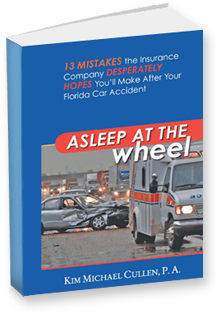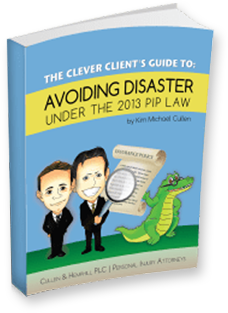A pedestrian was killed by an autonomous Uber vehicle in Phoenix, Arizona this past Sunday night. Such a tragic loss of life should cause us to consider some important issues here in Florida, as we prepare for the seeming inevitability of self-driving cars someday dominating our own roads and highways.
To their credit, Uber and the other large companies that are feverishly manufacturing and testing autonomous or self-driving vehicles (including semi tractor-trailers) around the country, have agreed to “pause” their self-driving vehicles while the Phoenix crash is being investigated. I, for one, am hoping that this pause lasts awhile.
While an investigation of the crash is ongoing, it appears that the female pedestrian was crossing a 45 mph road, walking her bicycle across the street, at 10PM on Sunday night. It is currently unknown whether the pedestrian had a headlight on her bike, or was wearing any other safety lighting, or even whether she was wearing reflective clothing. A preliminary investigation suggests that the vehicle did not brake or take any evasive action before the crash. I have seen social media post suggesting the woman “darted out” in front of the vehicle (this is a common defense when a driver wants to escape responsibly for hitting a pedestrian), but I am unaware of any evidence to support this.
CONCERNS HERE IN FLORIDA
As a Florida car accident attorney who frequently represents pedestrians who have been hit by cars, what sticks out to me is the information suggesting no evasive action was taken by the Uber vehicle. One of the main sales points for autonomous vehicles is that they are supposed to be superior to humans in terms of recognizing hazards and avoiding them. Theoretically, autonomous cars should be even better than humans in the dark — where their lasers and radars do not depend at all upon lighting conditions.
Self-driving vehicles are also supposed to be monitoring the area 360 degrees around a vehicle — a range far better than a human’s straight ahead and peripheral vision. Thus, it would seem that an autonomous should be able to easily “see” or sense any hazard approaching from the side. The fact that no braking or evasive action occurred suggests some kind of defect or problem with the sensors or software in the vehicle.
I am not licensed in Arizona, so I do not know what kind of legal responsibility Uber might have there. In Florida, the owner of a motor vehicle is responsible for any injuries or damages caused by the owned vehicle. It is important to note that many, if not all, of the companies advancing self-driving cars are already lobbying states — including Florida — for new laws that would protect them from liability. We cannot let that happen in Florida. Innocent victims of crashes should receive the full measure of their losses.
If you have questions about a Florida car accident, including an accident with an Uber vehicle, or a self-driving vehicle, call Winter Park personal injury attorneys Kim Cullen and Robert Hemphill at 407-644-4444, or download a copy of their free Florida accident e-book by clicking here.



